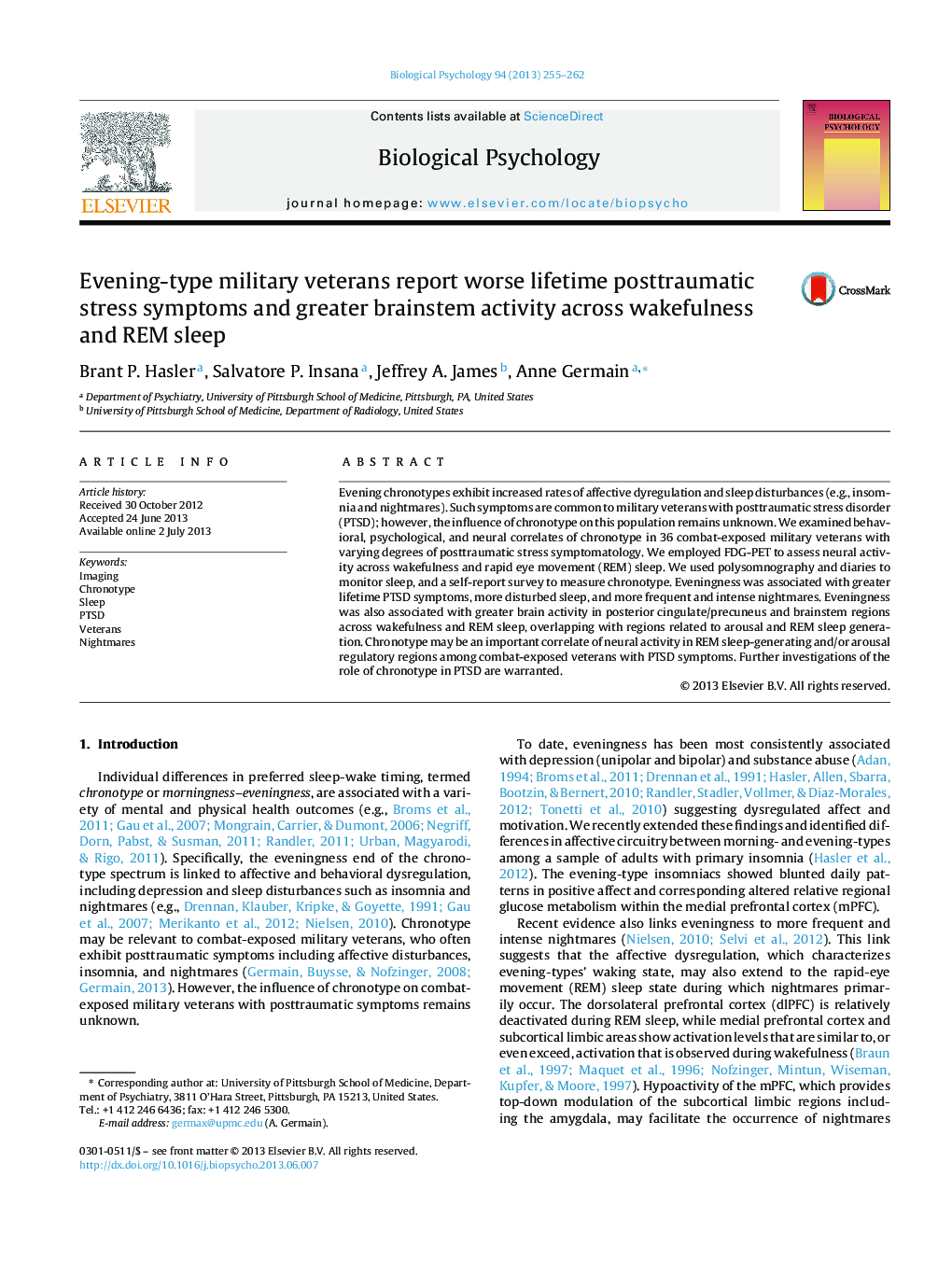| کد مقاله | کد نشریه | سال انتشار | مقاله انگلیسی | نسخه تمام متن |
|---|---|---|---|---|
| 920939 | 920738 | 2013 | 8 صفحه PDF | دانلود رایگان |

• Chronotype may be relevant to combat-exposed military veterans with PTSD.
• We examined the correlates of chronotype in veterans using FDG-PET and PSG.
• Chronotype was associated with lifetime PTSD, sleep disturbance, and nightmares.
• Chronotype was associated with brainstem rCMRglc across wakefulness and REM sleep.
Evening chronotypes exhibit increased rates of affective dyregulation and sleep disturbances (e.g., insomnia and nightmares). Such symptoms are common to military veterans with posttraumatic stress disorder (PTSD); however, the influence of chronotype on this population remains unknown. We examined behavioral, psychological, and neural correlates of chronotype in 36 combat-exposed military veterans with varying degrees of posttraumatic stress symptomatology. We employed FDG-PET to assess neural activity across wakefulness and rapid eye movement (REM) sleep. We used polysomnography and diaries to monitor sleep, and a self-report survey to measure chronotype. Eveningness was associated with greater lifetime PTSD symptoms, more disturbed sleep, and more frequent and intense nightmares. Eveningness was also associated with greater brain activity in posterior cingulate/precuneus and brainstem regions across wakefulness and REM sleep, overlapping with regions related to arousal and REM sleep generation. Chronotype may be an important correlate of neural activity in REM sleep-generating and/or arousal regulatory regions among combat-exposed veterans with PTSD symptoms. Further investigations of the role of chronotype in PTSD are warranted.
Journal: Biological Psychology - Volume 94, Issue 2, October 2013, Pages 255–262